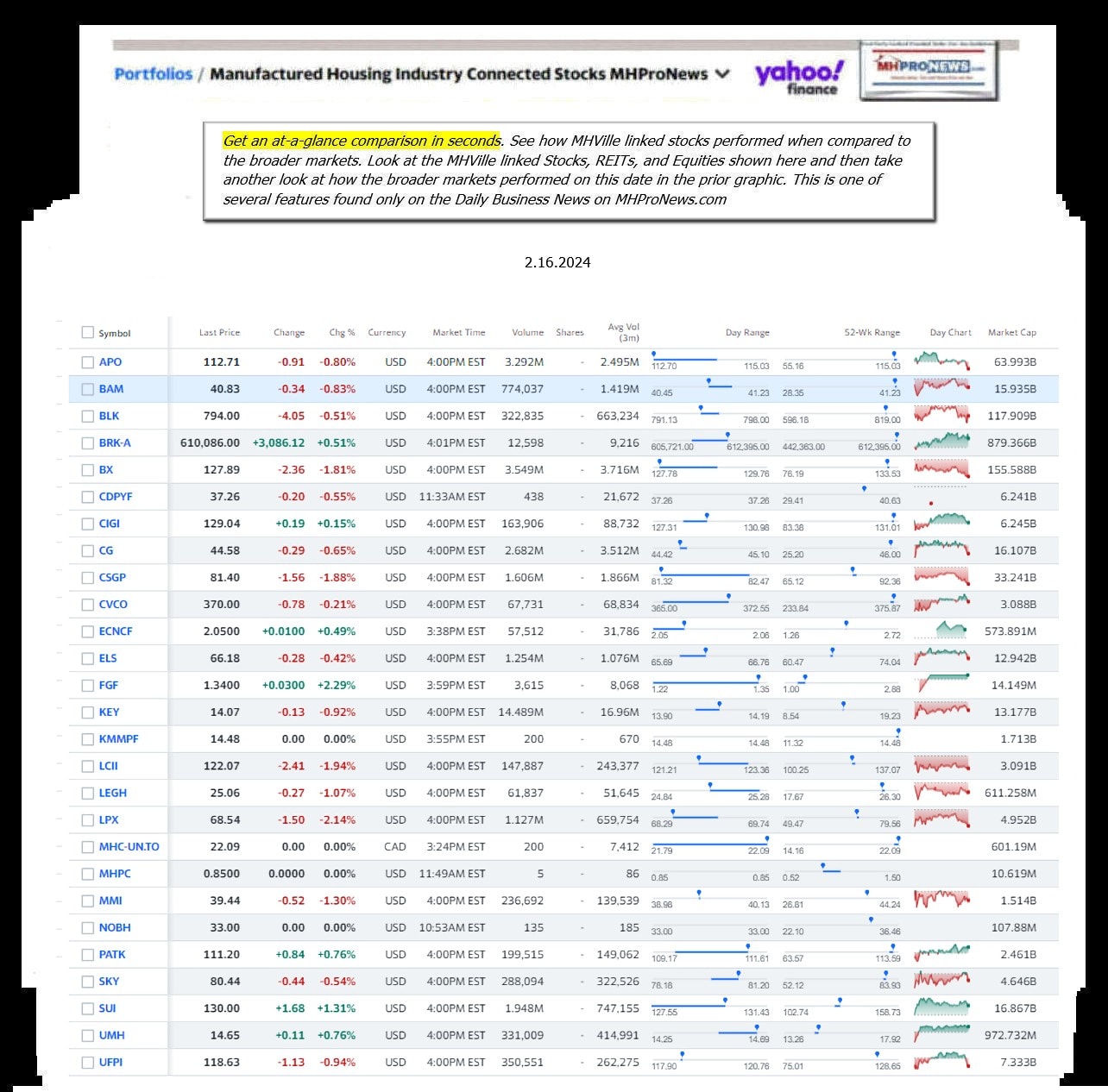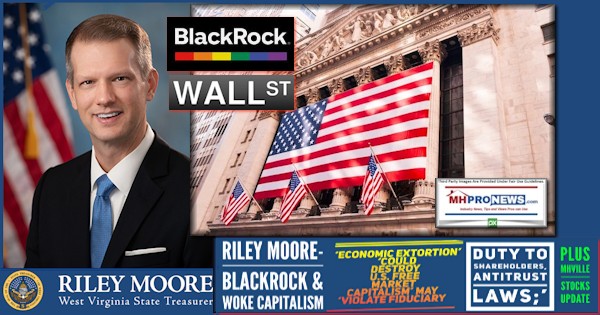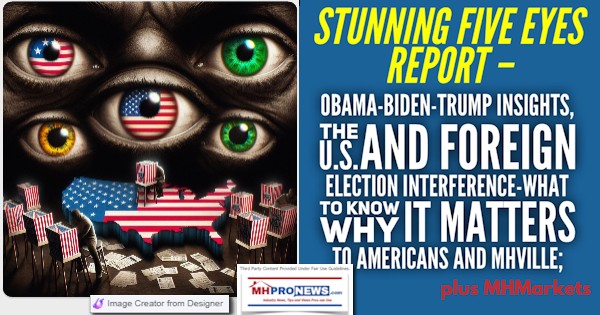
American and international history are routinely misunderstood and at times have been misrepresented in ways that impact personal and national interests to this day. For example, consider this partial list of well documented interference in the elections and/or internal government affairs by the U.S. in Chile, China before Communism, Guyana, El Salvador, Japan, Russia, Iran, Nicaragua, and Vietnam. The U.S. wasn’t necessarily acting alone in those efforts, some of that occurred in tandem with ‘friendly nations’ and their intelligence services, as Part III will briefly outline. This isn’t about left or right-wing perspectives, but rather it is about evidence, facts, and reasonable conclusions that can be drawn from facts and evidence. Self-described progressives, liberals, leftists, along with conservatives, constitutionalists, and libertarians should all lean into this. That brief tease will tee up two reports that are turning heads in mainstream media that intelligent MHPros – along with serious American adults – ought to know more about.
Ignorance isn’t bliss, ignorance is ignorance.
It isn’t just Americans who learn history. People in foreign nations are taught history, and there are times that they understand history better than Americans do.
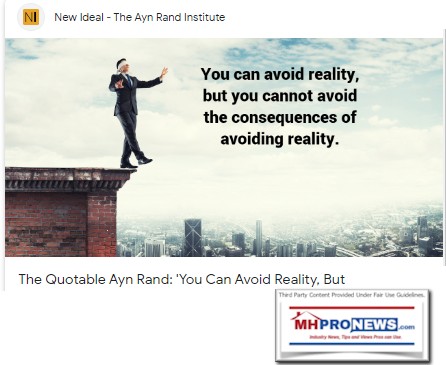
Part I is about new reporting about the Five Eyes intelligence services working U.S. officials in what can only be seen as domestic election interference. That report is from the WND News Center to MHProNews. An AI powered fact check will be included in Part II of that and the following report.
Part II is about new research from the Heartland Institute about the 2020 election. Highlights from the Heartland’s 36-page document are provided by the WND News Center to MHProNews. It is being paired with Part I for reasons that will become obvious.
Part III will do several things, including a rapid review of U.S. interference in the elections and internal affairs. Let’s note that our report earlier this week on the big rare earth minerals find in Wyoming (WY) is just one of several possible developments that could usher in a positive new era for working class, middle class, and most other Americans. The right policies could spell a boom for our industry instead of the pathetic performance of manufactured housing in the 21st century. People, politics, and policies all matter. They have a measurable impact on our lives. We can ignore them only at our own peril.
Part I
MONEY POLITICS SCANDALS U.S. WND NEWS CENTER WORLDWND
‘Five Eyes’: Stunning revelation of Obama using foreign agencies to spy on Trump
Declassified folder could be ‘proof’ many U.S. intel officials broke the law
By Bob Unruh
Published February 14, 2024 at 11:13am
A new report unleashed by investigative reporters Michael Shellenberg, Matt Taibbi and Alex Gutentag charges that Barack Obama’s administration “targeted 26 Trump advisers for foreign spy agencies to ‘reverse target’ and ‘bump.'”
The allegations, in an article behind a paywall at Substack, charges, “Multiple credible sources tell Public and Racket that the United States Intelligence Community (IC), including the Central Intelligence Agency (CIA), illegally mobilized foreign intelligence agencies to target Trump advisors long before the summer of 2016.”
The revelations are huge.
“The new information fills many gaps in our understanding of the Russia collusion hoax and is supported by testimony already in the public record,” the report said, “Until now, the official story has been that the FBI’s investigation began after Australian intelligence officials told US officials that a Trump aide had boasted to an Australian diplomat that Russia had damning material about Democratic presidential candidate Hillary Clinton.”
However, what actually happened, the report said, under Obama “The U.S. IC asked the ‘Five Eyes’ intelligence alliance to surveil Trump’s associates and share the intelligence they acquired with U.S. agencies, say sources close to a House Permanent Select Committee on Intelligence (HSPCI) investigation.”
The “Five Eyes” include U.S., U.K., Canada, Australia, and New Zealand.
The stunning report continues, “After Public and Racket had been told that President Barack Obama’s CIA Director, John Brennan, had identified 26 Trump associates for the Five Eyes to target, a source confirmed that the IC had ‘identified [them] as people to ‘bump,’ or make contact with or manipulate. They were targets of our own IC and law enforcement — targets for collection and misinformation.'”
It was special prosecutor John Durham who investigated, for years, and ruled that the FBI never should have opened its investigation of alleged collusion by Trump’s campaign and Russia in 2016, because there was no evidence.
The Substack report continued, “Unknown details about the FBI’s investigation of the Trump campaign and raw intelligence related to the IC’s surveillance of the Trump campaign are in a 10-inch binder that Trump ordered to be declassified at the very end of his term, sources told Public and Racket.”
That could, the report said, be “proof that multiple U.S. intelligence officials broke laws against spying and election interference.
According to a report at the Federalist, the report’s claim was that Obama’s s administration might have been spying on Trump as early as 2015, and the British Guardian claimed those multiple individuals were “targeted” because “suspicious ‘interactions'” were noted during the course of ordinary investigations.
Those details then were delivered to Obama’s henchmen.
“Not so, according to Shellenberger, Taibbi, and Gutentag’s sources, who were familiar with the House Permanent Select Committee on Intelligence’s investigation,” the Federalist explained.
“In truth, the U.S. IC asked the ‘Five Eyes’ intelligence alliance to surveil Trump’s associates and share the intelligence they acquired with U.S. agencies,” the Substack article said.
In fact, the report notes, “Barack Obama’s CIA Director, John Brennan, had identified 26 Trump associates for the Five Eyes to target.”
The instructions from Obama’s administration to foreigners were to “manipulate” those targets.
Further, the report said details of Obama’s scheming and other “raw intelligence” was included in that binder that Trump had ordered declassified at the end of his germ.
The Federalist noted it earlier had raised questions about Brennan, writing several years ago that, “The evidence suggests, however, that Brennan’s CIA and the intelligence community did much more than merely pass on details about ‘contacts and interactions between Russian officials and U.S. persons involved in the Trump campaign’ to the FBI. The evidence suggests that the CIA and intelligence community — including potentially the intelligence communities of the U.K., Italy, and Australia — created the contacts and interactions that they then reported to the FBI as suspicious.”
The Federalist noted, “Should the raw intelligence reports exist, as those sources claim, there will be concrete confirmation that foreign intelligence services targeted the Trump campaign, which in turn will confirm many of the theories posited about the real start of the Russia-collusion hoax.”
The report noted that details about what that binder may contain also “raises the specter” that the FBI raid on Trump’s Florida home, under the direction of Joe Biden, “wasn’t to protect classified materials but to protect intelligence agencies — American and foreign.” ##
Part II
ELECTION POLITICS SCANDALS U.S. WND NEWS CENTER WORLDWND
TRUMP WON! New analysis confirms he was victor in 26 of 29 scenarios
Follows polling that shows 1 in 45 mail-in ballots was fraudulent
By Bob Unruh
Published February 14, 2024 at 7:06pm
A new analysis of the evidence of election fraud during the 2020 presidential race, done by the Heartland Institute, reveals that President Donald Trump was the winner in 26 of the 29 different scenarios that were considered.
“In other words, had the 2020 election been conducted like every national election has been over the past two centuries, wherein the vast majority of voters cast ballots in-person rather than by mail, Donald Trump would have almost certainly been re-elected,” the report said.
The study is called, “Who really won the 2020 election? Measuring the effect of mail-in ballot fraud in the Trump-Biden race for the White House,” and was assembled by Jack McPherrin, Justin Haskins Donald Kendal, Christopher Talgo and James Taylor.
A summary of the results explains, “This paper examines the likely impact that fraudulent mail-in ballots cast for both Joe Biden and Donald Trump in the 2020 election could have had upon the overall electoral results, based upon recently unearthed evidence indicating widespread mail-in voter fraud indeed occurred in the 2020 election.”
It cites work by the institute, along with Rasmussen Reports, late last year that assessed the fraud in the election.
“The results of the survey are nothing short of stunning, and upon their release, they sparked numerous conversations about the amount of fraud in the 2020 election and the potential impact of mail-in ballot fraud in future elections. For example, former President Trump referred to the poll as ‘the biggest story of the year’ and ‘the most important poll released in the past 20 years.’ According to the results of the survey, a massive number of voters who cast ballots by mail admitted to committing at least one form of voter fraud in the 2020 election.”
Those findings determined:
“21 percent of mail-in voters admitted that in 2020 they voted in a state where they are ‘no longer a permanent resident.'”
“21 percent of mail-in voters admitted that they filled out a ballot for a friend or family member.”
“17 percent of mail-in voters said they signed a ballot for a friend or family member ‘with or without his or her permission.'”
“19 percent of mail-in voters said that a friend or family member filled out their ballot, in part or in full, on their behalf.”
Explained Heartlands researchers, “After analyzing the raw survey data, we were also able to conclude that 28.2 percent of respondents who voted by mail admitted to committing at least one kind of voter fraud. This means that more than one-in-four ballots cast by mail in 2020 were likely cast fraudulently, and thus should not have been counted.”
The conclusions follow: “Because Joe Biden received significantly more mail in votes than Donald Trump, we conclude that the 2020 election outcome would have been different in the key swing states that Donald Trump lost by razor thin margins in 2020—Arizona, Georgia, Michigan, Nevada, Pennsylvania, and Wisconsin— under the 28.2 percent scenario. We also analyzed the electoral results for those six swing states under every integer from 27 percent fraud down to 1 percent fraud, allowing readers to see the impact that fraudulent mail-in ballots might have produced under each scenario.”
The study found at the 28.2% fraud level, “Trump wins Arizona, Georgia, Michigan, Nevada, Pennsylvania, and Wisconsin. Trump wins the Electoral College 311-227.”
At a level of fraud 27% through 14%, “the overall results are identical to the 28.2 percent fraud scenario (though Trump’s margin of victory in each state shrinks as the overall mail-in ballot fraud integer shrinks).”
Then, at the fraud levels of 13% through 6%: “Trump wins Arizona, Georgia, Pennsylvania, and Wisconsin, but loses to Biden in Michigan and Nevada. Trump wins the Electoral College 289-249.”
Fraud at 5% to 4%?
“Trump wins Arizona, Georgia, and Wisconsin, but loses to Biden in Michigan, Nevada, and Pennsylvania. Trump and Biden tie the Electoral College 269-269. As described in more detail in the paper, Trump would likely have won the resulting vote in the House of Representatives, because Republicans controlled more state delegations in the wake of the 2020 election.”
Biden starts “winning” only when the fraud level is an unlikely 3% or lower, the report said.
Explained the study summary: “Impartial elections are absolutely essential to a cohesive and fruitful society. Historically, Americans have generally trusted that national elections have been free, fair, and secure, as well as bereft of widespread fraud. For generations, the majority of Americans have trusted that the electoral results delivered to the public were an accurate reflection of the will of the people. However, this time-honored tradition changed after the 2020 election. In the wake of the COVID-19 global pandemic, dozens of states significantly altered their voting processes. In many cases, these changes occurred imprudently, without serious consideration of their potentially adverse effects and without the consent of the people’s elected representatives in state legislatures.”
Heartland warned, “These abrupt and hasty changes to voting procedures in the months before the 2020 election occurred despite the fact that ample evidence showed that mass mail-in voting, unsecure ballot drop boxes, ballot harvesting, and lack of signature verification would result in a flood of fraudulent ballots that would undermine the accuracy of the election results.”
The report found, “Ultimately, our study shows that of the 29 different scenarios presented in the paper, Trump would have won the 2020 election in all but three (when mail-in ballot fraud is limited to 1–3 percent of the ballots counted). Hence, even if the level of fraud detected in our survey (28.2 percent of all mail-in ballots) substantially overstates the actual level of fraud that occurred, Trump would likely have won the 2020 election anyway.
“We have no reason to believe that our survey overstated voter fraud by more than 25 percentage points, and thus, we must conclude that the best available evidence suggests that mail-in ballot fraud significantly impacted the 2020 presidential election, in favor of Joe Biden.”
The analysis recommends states should update and verify election registration rolls every year, require ID to vote in person, encourage in-person vote and require a witness or notary for mail-in balloting.
They also should outlaw ballot harvesting, ban unsecure election drop boxes, require signature verification for mail-in ballots, investigate election law violations and impose harsh penalties on fraudsters.
And its warned, “The 2023 Heartland Institute/ Rasmussen voter fraud survey and the deductions from this paper clearly demonstrate that mail-in ballot fraud is a significant issue, which must be addressed sooner than later. If state lawmakers fail to solve this problem, Americans’ confidence in the legitimacy of elections in 2024 and beyond will likely decrease, paving the way for societal chaos and civil unrest.” ##
MHProNews Note: the full Heartland report is linked here.
Part III – Additional Information with More MHProNews Analysis and Commentary
1). Several months ago, MHProNews provided the following report. It details the awakening of a Marine General to what he realized was the use by “Wall Street” of the U.S. military.

2).
> “What are some examples of documented U.S. intelligence services interfering in foreign elections. Give dates and known evidence.”

- Chile (1964 and 1970):
- CIA covertly supported efforts to prevent Salvador Allende, a socialist candidate, from winning the Chilean presidential elections in 1964 and 1970.
- The CIA provided funding to opposition parties and media outlets to sway public opinion against Allende.
- In 1970, Allende won the election, but the CIA continued its efforts to destabilize his government, eventually leading to a military coup in 19731.
- Guyana (1964):
- The CIA allegedly played a role in the removal of Cheddi Jagan, a leftist leader, from power in Guyana.
- The agency supported opposition parties and encouraged labor strikes to create instability and undermine Jagan’s government1.
- El Salvador (1984):
- During the Salvadoran civil war, the CIA reportedly influenced the 1984 presidential election.
- The agency provided support to right-wing candidates and parties, aiming to prevent a victory by the leftist Farabundo Martí National Liberation Front (FMLN)1.
- Japan (1950s-1970s):
- The CIA allegedly influenced Japanese politics during the Cold War.
- It supported conservative politicians and parties to counter left-leaning movements.
- The agency’s involvement was not limited to elections but extended to broader political influence1.
- Russia (1996):
- In the 1996 Russian presidential election, the U.S. government supported Boris Yeltsin’s re-election campaign.
- The CIA reportedly provided financial assistance to Yeltsin’s campaign and media outlets that favored him.
- Yeltsin won the election, defeating his communist opponent, Gennady Zyuganov1.
- Iran (1953):
- The CIA orchestrated a coup in Iran to overthrow Prime Minister Mohammad Mossadegh.
- The operation aimed to protect U.S. and British oil interests by reinstating the Shah of Iran, Mohammad Reza Pahlavi, who was more favorable to Western powers1.
- Nicaragua (1980s):
- During the Nicaraguan civil war, the CIA supported anti-Sandinista forces.
- The agency provided funding, training, and weapons to the Contras, who opposed the leftist Sandinista government.
- These efforts aimed to influence the outcome of elections and undermine the Sandinistas1.
Remember that these examples are based on historical records and investigations. The involvement of intelligence services in foreign elections is a complex and controversial topic, often with long-lasting consequences. For more detailed information, you can refer to the declassified reports and historical analyses21.
Learn more
1 foreignaffairs.com 2 dni.gov 3 justice.gov 4 dhs.gov 5 dni.gov…”
3).
> “Among the topics covered in Shadows of Liberty was the apparent misuse of U.S. intelligence information to get the U.S. into a war with Iraq. That report also explored the problems exposed by reporter Gary Webb with the U.S. involvement in the drug trade in Central America, specifically, Nicaragua. Using an annotated transcript of that award winning documentary as part of your reference sourcing, isn’t it fair to say that intelligence services have arguably interfered with American politics, even if it isn’t necessarily described in that fashion? Meaning, when the truth is hidden or obscured from voters, doesn’t a lack of transparency make accountability at the ballot box more difficult to accomplish?”

5).
> “The Church Commission and the Congressional probes into U.S. assassinations revealed sobering evidence of not only foreign but domestic issues. For example, we now know that Dr. Martin Luther King Jr. was spied on by the FBI. There is evidence that King was subjected to an effort to blackmail him. Provide some context.”

6).
> “The documentary CIA and Drugs as Weapons Against Us explores elements of how the CIA, which per its charter is not supposed to act in domestic U.S. affairs, in fact was acting on a routine basis in activities in the U.S., isn’t that correct? Didn’t that activity occur over a period of numbers of years? And as Gary Webb and others revealed, the CIA has been accused of bringing in drugs during the Vietnam War and the Afghanistan, among other conflicts. Provide some color to that.”

- CIA and Domestic Affairs:
- The Central Intelligence Agency (CIA), by its charter, is primarily tasked with foreign intelligence operations.
- However, evidence suggests that the CIA has been involved in activities within the United States, often covertly.
- These activities span decades and intersect with issues such as drug trafficking, political manipulation, and social control.
- Gary Webb and the Dark Alliance:
- Investigative journalist Gary Webb played a crucial role in exposing the CIA’s connection to drug trafficking.
- In the 1990s, Webb wrote a series of articles titled “Dark Alliance” for the San Jose Mercury News.
- His investigation revealed that the CIA was indirectly complicit in the crack cocaine epidemic in Los Angeles.
- The agency allegedly protected drug dealers associated with the Nicaraguan Contras, a group fighting against the Sandinista government in Nicaragua.
- The Contras were covertly supported by the U.S. government during the Nicaraguan civil war.
- The profits from drug trafficking were used to fund the Contras’ operations1.
- Cocaine Dictator and the Cold War:
- The case of Manuel Noriega, the dictator of Panama, exemplifies the CIA’s complex involvement.
- Noriega, initially a CIA asset, became a major cocaine trafficker during the Cold War.
- He used his intelligence and military position to protect and profit from drug cartels.
- Eventually, the U.S. indicted and invaded Panama under President George H.W. Bush, who had been Noriega’s former CIA boss2.
- Vietnam War and Afghanistan:
- During the Vietnam War, the CIA allegedly facilitated the production of heroin in the Golden Triangle (Burma, Thailand, and Laos).
- The agency’s operations, including Project MK-Ultra, involved pushing LSD and other drugs on leftist leaders.
- In Afghanistan, during the Soviet-Afghan War, the CIA supported anti-Soviet mujahideen fighters.
- The region was also a major hub for opium production.
- The so-called “war on drugs” often masked the use of drugs as a tool of geopolitical influence3.
- Legacy and Ongoing Debates:
- The revelations by Gary Webb and others raised serious questions about the CIA’s actions.
- Investigations by the Church Committee and subsequent hearings highlighted the agency’s indirect complicity.
- While some claims remain unsubstantiated, the overall impact on communities affected by drug trafficking is undeniable.
In summary, the CIA’s involvement in drug-related activities, both abroad and domestically, remains a contentious issue. It underscores the delicate balance between national security, covert operations, and the unintended consequences of such actions on society31…”
MHProNews has published reports on these topics, include one that includes a free version of Drugs as Weapons Against Us.
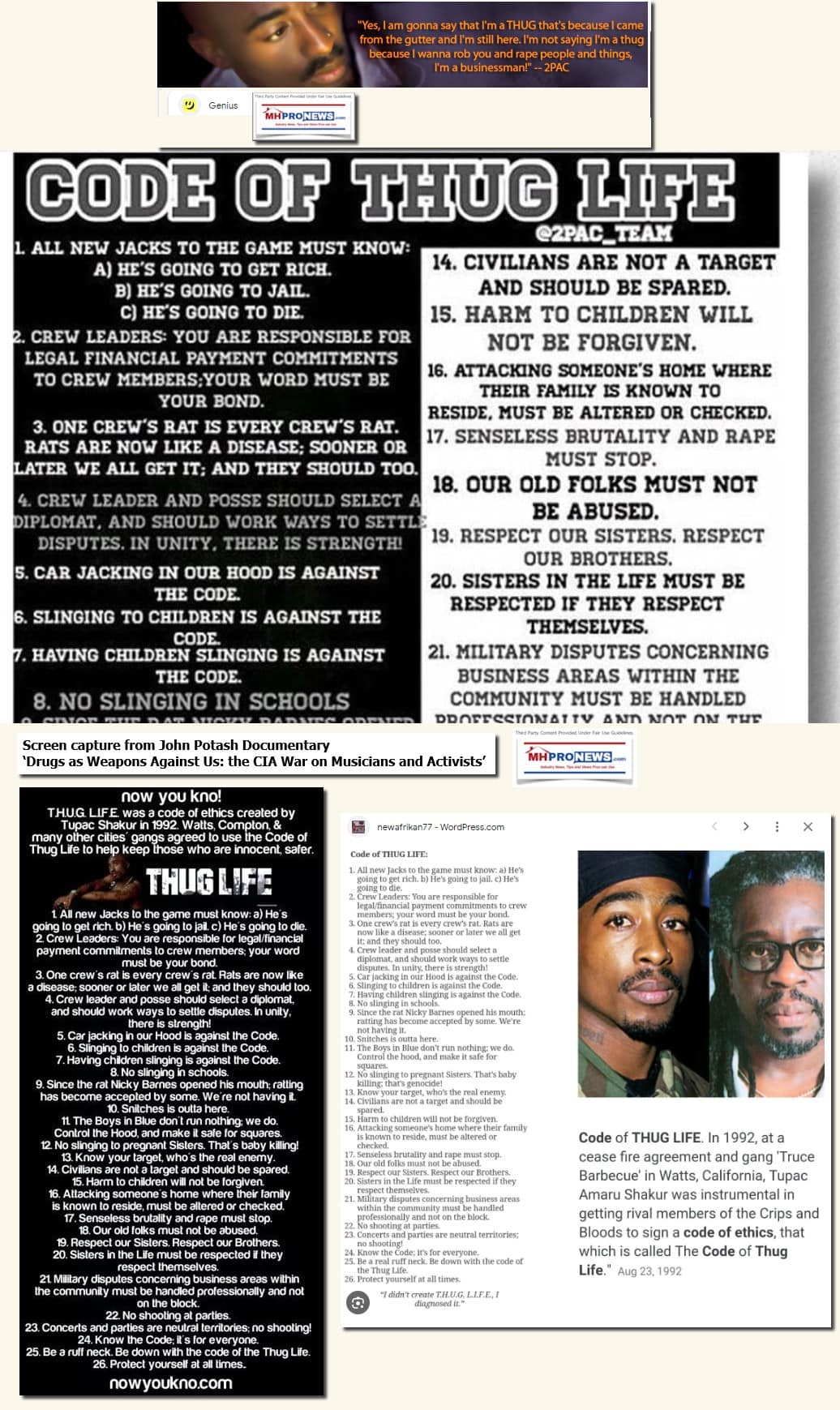

7).
> “There is certainly an argument to be made that there is no definitive proof that U.S. government officials were involved in the assassination of U.S. President John F. Kennedy (D). That said, the subcommittee on assassinations did develop evidence that there were more than one guns involved. There were several oddities that are difficult to explain in how Kennedy’s protection detail operated, and how the body was handled following the fatal shooting. The fact that the majority of Americans believe in a conspiracy to kill Kennedy some 6 decades after the event is significant, as is the point that many documents were never released, which calls into question concerns about a lack of transparency and a cover up. There are authors and reporters that asserted that had Kennedy remained in office, he was prepared to change policy in Vietnam, and make other moves in what would have been his second term that riled powerful corporate and governmental interests in and beyond the so-called military-industrial-spy complex. Provide some insights.”
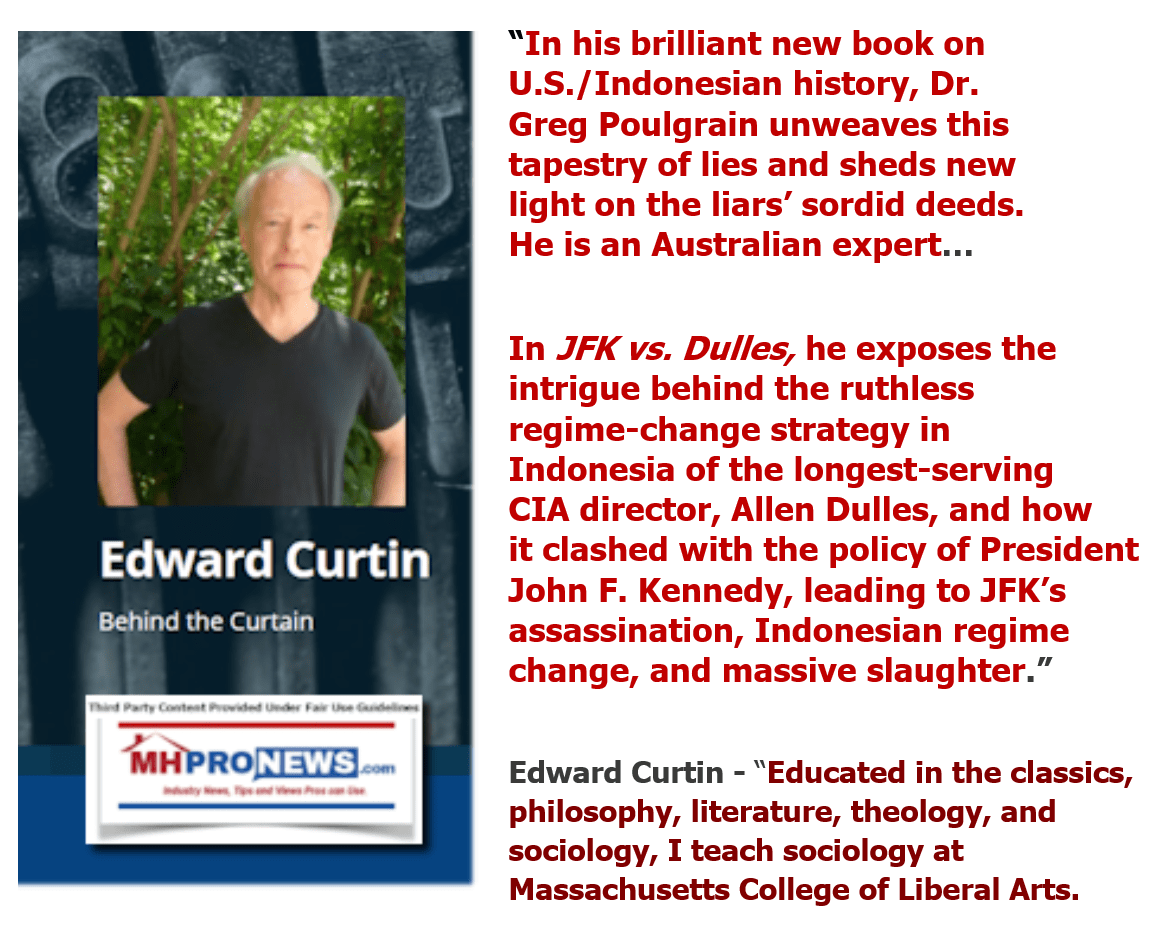
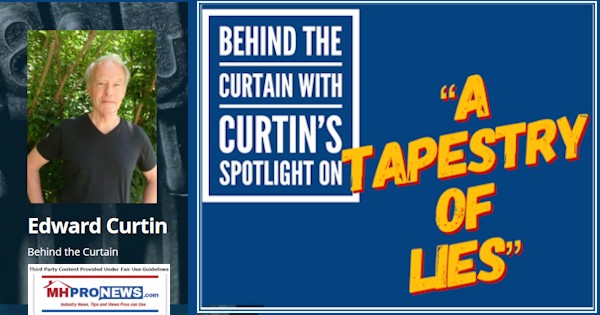
8).
> “Requiem for the American Dream and Manufacturing Consent explore the ways that special interests, media, and government can intersect in ways that are designed to manipulate the population, correct? Provide some context and share possible points of intersection between that and items in this thread.”
Note that our report on that topic above includes an annotated transcript and the video.
9).
“Shadows, Requiem, and Manufacturing Consent are broadly from the political left perspective. That said, more moderate or center-right is the Hanne N. Herland’s book Billionaire’s World. The Creepy Line documentary is also more center-right. Back on the left is the fresh Oxfam research. There appears to be several overlaps between those various topics. It seems that there is an evidence-based case to be made that the financial elites use their big media and big tech influence to move public officials, elected and appointed, to adopt a position that is favorable to their own interests. Provide some reaction or support to that notion.”
> “While it is true that a relative small slice of the population, the so-called 1 percent, have an outsized influence in American society, isn’t it also true that elections still matter and that obviously voters still matter? Indeed, isn’t part of the purpose of ‘manufacturing consent’ and creating these manipulations and illusions to lull at least enough voters into supporting candidates who are going to be favorable to the interests of the so-called financial elites and their special interests?”

- Elections and Voter Impact:
- Elections remain a fundamental aspect of democratic governance.
- Voters have the power to choose representatives, shape policies, and hold officials accountable.
- Every vote counts, especially in close races.
- Participating in elections is a way for citizens to express their preferences and influence the direction of their country.
- Manufacturing Consent and Voter Perception:
- The concept of “manufacturing consent” highlights how media narratives shape public opinion.
- Media, influenced by corporate interests, can create illusions or manipulate perceptions.
- By framing issues, emphasizing certain topics, or downplaying others, media can sway voters’ views.
- The goal may be to align public sentiment with policies favorable to financial elites.
- Lulling Voters and Elite Interests:
- Some argue that the purpose of manufacturing consent is to lull voters into supporting candidates who serve elite interests.
- By controlling information flow, media can create an illusion of choice while limiting genuine alternatives.
- Candidates who align with financial elites may receive favorable coverage.
- Voters may unknowingly support policies that benefit the 1 percent.
- Challenges and Vigilance:
- The challenge lies in distinguishing genuine democratic processes from manipulations.
- Vigilance is crucial:
- Media Literacy: Citizens must critically evaluate information sources.
- Transparency: Demanding transparency in campaign financing and lobbying.
- Independent Journalism: Supporting independent journalism that investigates power structures.
- Policy Awareness: Understanding the impact of policies on different segments of society.
- Collective Action and Reform:
- While individual votes matter, collective action is powerful.
- Movements, advocacy groups, and grassroots efforts can challenge elite influence.
- Campaign finance reform, lobbying regulations, and electoral reforms are essential.
- Citizens can demand accountability and push for policies that serve broader interests.
In summary, while financial elites exert influence, voters’ engagement, media literacy, and collective efforts are vital for a healthy democracy. Recognizing manipulation and seeking transparency empower citizens to make informed choices that align with their values and interests …”
12).
> “In the U.S., election turnouts are often relatively low. Which means that voters that are ‘turned off,’ or otherwise decide not to vote can be a de facto benefit to the elites who are pushing a particular candidate, isn’t that accurate?”

- Impact of Low Voter Turnout:
- When a significant portion of eligible voters chooses not to participate, it affects the overall democratic process.
- Low turnout means that a smaller subset of the population determines election outcomes.
- This subset may not fully represent the diversity of views and interests within society.
- Benefit to Elites:
- Financial elites and special interest groups often have resources to mobilize their preferred voters.
- They can fund campaigns, engage in lobbying, and shape media narratives.
- When turnout is low, their influence becomes more pronounced.
- Candidates who align with elite interests may benefit from this skewed participation.
- Disenfranchisement and Apathy:
- Factors contributing to low turnout include:
- Voter Suppression: Some groups face barriers to voting (e.g., restrictive ID laws, limited polling locations).
- Apathy: Disillusionment with politics, lack of trust in institutions, and feeling disconnected.
- Inconvenience: Long lines, work schedules, and other practical challenges.
- Disenfranchised voters are less likely to hold officials accountable or advocate for their interests.
- Factors contributing to low turnout include:
- Policy Implications:
- Policies enacted by elected officials impact everyone, regardless of whether they voted.
- Low turnout can lead to policies that favor the wealthy, reduce social services, or perpetuate inequality.
- Elites may push for tax breaks, deregulation, and policies that maintain their advantage.
- Counteracting Elite Influence:
- Encouraging higher turnout is essential:
- Voter Education: Informing citizens about issues, candidates, and the importance of voting.
- Accessibility: Expanding voting options (early voting, mail-in ballots) to reduce barriers.
- Civic Engagement: Encouraging community involvement and grassroots movements.
- Campaign Finance Reform: Limiting the influence of money in politics.
- Encouraging higher turnout is essential:
- Collective Responsibility:
- While individual voters matter, collective action is powerful.
- Citizens must recognize their role in shaping democracy.
- Holding officials accountable and advocating for policies that benefit all citizens are shared responsibilities.
In summary, low voter turnout can inadvertently amplify elite influence. Encouraging active participation and addressing barriers to voting are essential for a more equitable and representative democracy …”
13).
> “There is a mantra used by some, make voting easy, but make cheating hard. The Heritage Foundation has developed a database of documented cases of voter fraud in the U.S., isn’t that right? How many cases are currently in that database that they maintain?”
> “Reporters Michael Shellenberg, Matt Taibbi and Alex Gutentag in a new report on Substack said that during Barack Obama’s administration U.S. intelligence services worked with the “Five Eyes” and “targeted 26 Trump advisers for foreign spy agencies to ‘reverse target’ and ‘bump.'” “Multiple credible sources tell Public and Racket that the United States Intelligence Community (IC), including the Central Intelligence Agency (CIA), illegally mobilized foreign intelligence agencies to target Trump advisors long before the summer of 2016.” “The new information fills many gaps in our understanding of the Russia collusion hoax and is supported by testimony already in the public record,” the report said, “Until now, the official story has been that the FBI’s investigation began after Australian intelligence officials told US officials that a Trump aide had boasted to an Australian diplomat that Russia had damning material about Democratic presidential candidate Hillary Clinton.” However, what actually happened, their report said, that during the Obama-Biden years “The U.S. IC asked the ‘Five Eyes’ intelligence alliance to surveil Trump’s associates and share the intelligence they acquired with U.S. agencies, say sources close to a House Permanent Select Committee on Intelligence (HSPCI) investigation.” After Public and Racket had been told that President Barack Obama’s CIA Director, John Brennan, had identified 26 Trump associates for the Five Eyes to target, a source confirmed that the IC had ‘identified [them] as people to ‘bump,’ or make contact with or manipulate. They were targets of our own IC and law enforcement — targets for collection and misinformation.'” It was special prosecutor John Durham who investigated, for years, and ruled that the FBI never should have opened its investigation of alleged collusion by Trump’s campaign and Russia in 2016, because there was no evidence. That said, doesn’t their report fit the vexing notion of domestic election interference?”

- Targeting Trump Advisers:
- According to the report, the U.S. Intelligence Community (IC), including the CIA, worked with foreign intelligence agencies to surveil 26 Trump associates.
- Former CIA Director John Brennan allegedly identified these targets and presented them to the Five Eyes intelligence alliance (U.S., UK, Canada, Australia, New Zealand).
- The purpose was to collect information and potentially manipulate these individuals.
- Reverse Targeting and Bumping:
- The term “reverse target” refers to using foreign intelligence agencies to surveil U.S. citizens.
- “Bumping” involves making contact with a target to develop a relationship that could lead to intelligence gathering.
- The report suggests that these Trump associates were both targets of foreign intelligence and manipulated by U.S. agencies.
- Russia Collusion Hoax:
- The official narrative has been that the FBI’s investigation began after Australian intelligence officials reported a Trump aide’s alleged Russia-related comments.
- However, the new information challenges this narrative, suggesting that surveillance efforts predated the official timeline.
- Domestic Election Interference?:
- The report raises questions about the role of intelligence agencies in domestic affairs.
- If true, it fits the vexing notion of interference, where intelligence activities intersect with electoral processes.
- The impact on public perception, policy decisions, and democratic norms is significant.
- John Durham’s Investigation:
- Special Prosecutor John Durham investigated the FBI’s probe into Trump-Russia collusion.
- Durham concluded that the investigation lacked evidence to justify its initiation.
- The report highlights the importance of transparency and accountability in such matters.
In summary, the report underscores the need for vigilance in safeguarding democratic processes. Whether this constitutes domestic election interference or not, it raises critical questions about the role of intelligence agencies in shaping political narratives and influencing outcomes123…
Learn more
15).
> “The MRC did a poll that concluded that if more voters had been aware of the allegations that emerged from the Hunter Biden laptop, 17 percent of Biden voters would not have voted for him, which would have tipped the 2020 election to Trump. More recently, the Heartland Institute did research that indicates that a sizable percentage of 2020 voters admitted that their mail in ballots were not properly used. The Heartland research suggests that in most of the scenarios, based on that polling, Trump would have won the election in 2020. Then there are the concerns raised about drop boxes funded by nonprofits linked to Mark Zuckerberg, who donated roughly $400 million dollars to those nonprofits in getting drop boxes placed in typically heavily Democratic districts. These examples indicate that concerns raised in Heartland or others seem to fit the notion of how the financial elites can use their wealth, big media, big tech, and other influence in ways that can – and perhaps did – influence the 2020 election. While Biden supporters may obviously disagree, the evidence and arguments advanced by those who bring these concerns to the public is sobering, aren’t they? And doesn’t it broadly fit the types of concerns that Manufacturing Consent, Requiem, and Shadows of Liberty – among others – have raised?”

- Hunter Biden Laptop Allegations:
- The MRC poll suggests that if more voters had been aware of the allegations from the Hunter Biden laptop, 17% of Biden voters might not have voted for him.
- While this claim is based on polling, it underscores the impact of information availability on voter decisions.
- Mail-In Ballot Issues:
- The Heartland Institute’s research indicates that a sizable percentage of 2020 voters admitted their mail-in ballots were not properly used.
- If true, this raises questions about the integrity of the voting process and its impact on election outcomes.
- Zuckerberg’s Funding and Drop Boxes:
- Mark Zuckerberg’s funding of nonprofits to place drop boxes in heavily Democratic districts has drawn scrutiny.
- Concerns include unequal opportunities to vote and potential manipulation of election processes.
- Influence of Financial Elites and Media:
- These examples broadly fit the concerns raised in documentaries like “Manufacturing Consent,” “Requiem for the American Dream,” and “Shadows of Liberty.”
- They highlight how financial elites, media narratives, and technology can shape public perception and potentially influence elections.
- Sobering Evidence and Public Debate:
- The evidence and arguments advanced by those raising concerns are indeed sobering.
- Public debate around transparency, accountability, and the role of money in politics is essential for a healthy democracy.
In summary, the intersection of wealth, media, and technology in elections warrants ongoing scrutiny. The documentaries you mentioned provide context for understanding these dynamics and underscore the need for informed citizens and robust democratic processes12345678910111213
Learn more
16).
Per Real Clear Politics (RCP) on 2.16.2024 at 5:09 PM.
17).
Per Matt Taibbi via Racket News on 2.16.2024 are the following.

The March 2018 House report found that the production of the ICA “deviated from established CIA practice.” And the core judgment that Putin sought to help Trump, the House report found, resulted from “significant intelligence tradecraft failings that undermine confidence in the ICA judgments.”
Many of us who followed this story — a number of reporters on both sides of the aisle did so obsessively — have long had a good idea about the general direction of that House investigation. The tale of improper CIA and FBI surveillance mixed with manufactured intelligence has been in the ether since late 2017 and early 2018. …”
Aaron, considered a traitor by former mainstream colleagues, faced pressure from staff at The Nation, was denounced by The Guardian as part of a “network of conspiracy theorists,” and failed to gain support from any major media outlet or press advocacy organization when the FBI passed on an outrageous request from Ukrainian secret services to remove him from Twitter.
Others who got this story right but were singled out for dismissal or ridicule include:
- former CIA officer Ray McGovern, who was called “fringe” and “conspiracy-mongering” by Max Boot, a member of the illustrious club of pundits who botched both the Steele dossier and Iraqi WMD stories;
- former NYPD officer and Secret Service agent Dan Bongino, who has been on this subject for years and was called a “misinformation superspreader” by the New York Times after the 2020 election;
- Intercept founder Glenn Greenwald, denounced as a pathological bigot for dissenting on Trump-Russia themes, and ultimately forced out of his own publication for writing critically of Hunter Biden and Burisma without adequately addressing the question of “Russia’s hand”;
- former CIA operative Larry Johnson, who said years ago that the surveillance campaign began with the GCHQ, Britain’s version of the NSA, in 2015 and was among the first to say publicly what our source just told us, that there is intelligence suggesting Maltese professor and supposed Russian asset Joseph Mifsud was British intelligence. He’s naturally been denounced as a “conspiracy theorist”;
- Fox Business host Maria Bartiromo, declared “bonkers” by the Daily Beast, perhaps the most aggressive promoter of the “collusion” theory and one of the most dependable producers of factually dubious stories on this subject in the mainstream press landscape;
- author Lee Smith, the major chronicler of the HPSCI work (more to come on this), who naturally was ripped for “conspiracy theory” for publishing a book on the subject;
- Pulitzer-winner Jeff Gerth, who wrote a 24,000-word deconstruction of Trump-Russia coverage in the Columbia Journalism Review that included a quote from Bob Woodward saying the media needed to “walk down the painful road of introspection.” He was called a “Trump-Russia denialist” who “can’t handle the truth,” by David Corn of Mother Jones, one of the first people to publish the phony Steele-blackmail story;
- another RealClear writer, Paul Sperry, who wrote about CIA chief John Brennan overruling dissent to create the 2017 Intelligence Community Assessment. Sperry popped up in the Twitter Files when the office of California congressman Adam Schiff, who infamously said he had “more than circumstantial” evidence of collusion, asked to have Sperry banned;
- Professor Margot Cleveland of The Federalist and Chuck Ross of the Daily Signal, who both got this right and were both marked “unreliable” by Pentagon-funded NewsGuard;
- former The Hill and current JustTheNews writer John Solomon, who published a significant amount of the key documents in this matter, and was the subject of a poisonous media campaign that crested particularly during the period of the first Trump impeachment;
- citizen investigators like the Racket-profiled “Sleuth’s Corner” of @Walkafyre, @TECHNO_FOG, @RyanM58699717, @climateaudit, @FOOL_NELSON, and @Hmmm57474203. This group who uncovered the name of the “primary sub-source” of famed British ex-spy Christopher Steele, Igor Danchenko, not only went roundly uncredited, but was immediately accused in the New York Times of putting Danchenko “in Russia’s sights” by Virginia Senator Mark Warner.
There are countless others. Even I took more than one whack at this material in the past, among other things listing episodes involving illegal classified leaks as a way of focusing attention on intelligence abuses surrounding the Trump-Russia scandal. I heard the gist of this week’s story six years ago, but didn’t have the details and the multiple people willing to be sources I needed to put something in print. That changed when Michael, Alexandra, and Public got their scoop a few weeks ago.
Anyone can go back and read the reports of the figures listed above and piece together pretty much the whole story we ran this week, minus a few conspicuous details. We learned there were 26 surveillance targets among Trump’s aides and associates in the 2016 campaign year, and we were able to use a number of key quotes, including the internal intelligence community analysis that Russia wasn’t desperate to avoid a Hillary Clinton presidency at all, but saw her as “manageable and reflecting continuity” and a “relationship they were comfortable with.”
These details, along with things like the assertion that the surveillance had “nothing to do with our relationship with Russia” and was “just leveraging capabilities to undermine a rookie unprepared Trump campaign,” are important and move the story forward. The quotes about Russia’s attitude toward Hillary in particular could be impactful in helping undo one of the last surviving Russiagate myths.
18).
The Committee to Unleash Prosperity (CTUP) recently released a survey on the attitudes of the 1 percent and how they differ from the 99 percent. It identified a ‘Grand Canyon sized gap’ between the elites and the rest of the population’s thinking. “Only about 20% of all Americans say they believe their finances are getting better now [than 4 years ago]. But among the Elite, that number more than triples to 74% who say they are better off.” Ever wonder what the 1 percent really thinks? The analysis of that report very much connects to how manipulation of the population has allowed these issues to develop. See that research linked below.

19).
Seemingly believable lies and clever but deceptive illusions have been created that have caused millions to de facto be voting for those who are undermining their own interests (see the report linked above). While left vs. right matters, Glenn Greenwald has a point when he recently said that it is about anti-Establishment vs. pro-Establishment. Following that interview between Greenwald and Russell Brand, Brand was accused of assaulting a woman, something he denies. Coincidence? Or was that allegation a naked attempt (pardon the pun) to diminish the growing following of Brand?


20).
Biden (D) slams Vlad “the Impaler” Putin for the death of his top political rival. Yet, here in the U.S., it seems that Biden-aligned Democrats have attempted to engage in an array of “Banana Republic” style attempts to harm and diminish Trump, who despite it all, keeps rising in the polls. It will be interesting to see how the court ruling yesterday that could cost Trump over $350 million dollars will impact his popularity. If the past is prologue, his followers may see it as just more election interference and “lawfare.” While recent testimony in the House connects Biden and his son Hunter with purportedly millions of dollars in corrupt payoffs in Ukraine (among other nations), thus far, there have been negligible consequences. By contrast, Trump has been hit with suits funded by supporters of Biden and/or by Democratic officials using taxpayer resources to prosecute and sue Trump and his business interests, despite the fact that no hard evidence exists and no lenders have claimed any losses.
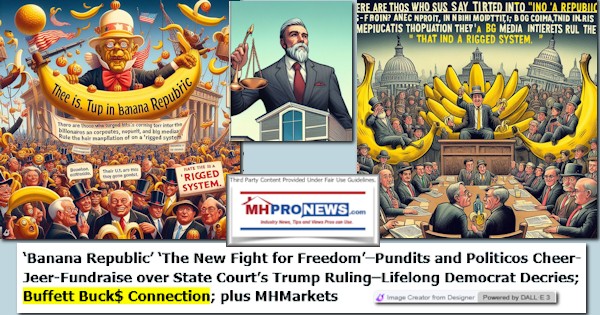
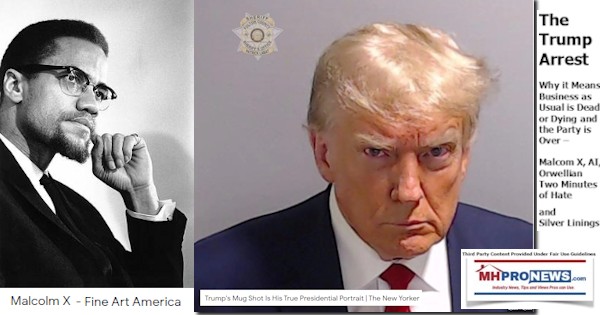
21). One doesn’t have to be a Trump fan or supporter of his politics to realize that a sobering trend is underway in the U.S.A. The ruling that occurred in that New York court yesterday will be appealed. The weaponization of intelligence services could be used to target anyone. While such things have happened before in the U.S. and beyond, the recent revelations are breathtaking in their brazenness. Keep in mind Constitutional rights attorney John Whitehead’s recent remarks on the topic of how ‘everyone’ in the U.S. is now “watched” and on some list. That is sobering.
If something analogous occurred to you, me, or anyone else, thinly veiled claims that use the legal system to unjustly target political or business rivals could be part of the future for more Americans. If that happens, that could spell the end of the U.S.A. as we have long known it. As Democrat and Harvard Constitutional Law Professor Alan Dershowitz has said, people should consider the “if the shoe was on the other foot” perspective. If what happened to Trump happened to you, how would that be?
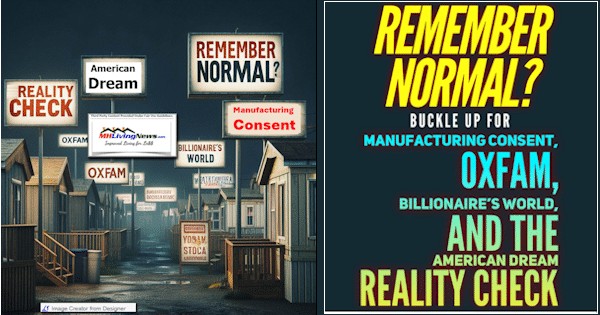
Conclusion
Weaponizing the legal and intelligence services in the U.S. are about as menacing a threat to the American Way as has been known in our country in some years. The worst fears of John F. Kennedy (D), Dwight “Ike” Eisenhour (R) are being revealed and coming to fruition before our very eyes. People of good will should act prudently to stop this growing threat. Act and vote wisely.
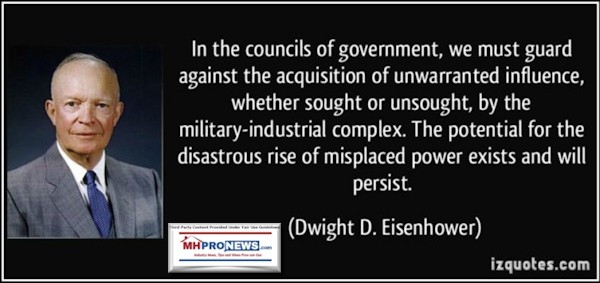


Part III – is our Daily Business News on MHProNews stock market recap which features our business-daily at-a-glance update of over 2 dozen manufactured housing industry stocks.
This segment of the Daily Business News on MHProNews is the recap of yesterday evening’s market report, so that investors can see at glance the type of topics may have influenced other investors. Thus, our format includes our signature left (CNN Business) and right (Newsmax) ‘market moving’ headlines.
The macro market move graphics below provide context and comparisons for those invested in or tracking manufactured housing connected equities. Meaning, you can see ‘at a glance’ how manufactured housing connected firms do compared to other segments of the broader equities market.
In minutes a day readers can get a good sense of significant or major events while keeping up with the trends that are impacting manufactured housing connected investing.
Reminder: several of the graphics on MHProNews can be opened into a larger size. For instance: click the image and follow the prompts in your browser or device to OPEN In a New Window. Then, in several browsers/devices you can click the image and increase the size. Use the ‘x out’ (close window) escape or back key to return.
Headlines from left-of-center CNN Business – from 2.16.2024
- Leading tech firms pledge to address election risks posed by AI
- How are you navigating your debt?
- Caitlin Clark has locked in lucrative sponsorships while making history on the court.
- Caitlin Clark-onomics and the new era of profitability in college sports
- The TikTok application on a smartphone arranged in the Brooklyn borough of New York, US, on Thursday, March 9, 2023.
- New York City sues social media platforms over youth mental health crisis
- Cars drive along Highway 101 as rain falls on January 04, 2023 in Greenbrae, California.
- Headlights are blinding us. Here’s why it’s mostly an American problem
- Illuminated trademark of the American athletic footwear and apparel corporation Nike, Inc. seen on the Nike Store window in Antwerp, Belgium, on February 15, 2024.
- Nike is cutting about 1,700 jobs
- New home construction is seen, Tuesday, Jan. 16, 2024, in Kennesaw, Ga.
- US homebuilding sees biggest drop since April 2020
- A worker moves pallets of soft drinks outside a beverage distribution company in New York, New York, on Monday, Jan. 29, 2024.
- January wholesale inflation saw biggest monthly increase since August
- Pam Milligan fills up gas at a Circle K gas station at Osborn and 3rd streets in Phoenix on Feb. 1, 2024.
- Don’t look now but gas prices are rising fast
- Mohammed Zina, former analyst at Goldman Sachs Group Inc…
- Ex-Goldman Sachs analyst jailed for insider dealing
- Why oil prices aren’t soaring despite Middle East uncertainty
- Sean Hannity and right-wing media claimed the ‘Biden crime family’ took millions in bribes. Their narrative just fell apart
- Japan and the UK are in recessions. Is the US next?
- House committee issues unprecedented subpoenas to Harvard in antisemitism investigation
- Despite a recession, Japan’s stocks are partying like it’s 1989
- A traditional automaker just turned a profit on EVs
- Japan just lost its crown as the world’s third-largest economy
- OpenAI will now let you create videos from verbal cues
- He was a hero on Alaska Air 1282. Now he’s picketing for ‘livable’ wage
- Squishmallows and Build-A-Bear head into legal battle over ‘knock-offs’
- Why some investors don’t mind waiting longer for rate cuts
- Mortgage rates rise for the second week, reaching 6.77%
- Target creates its cheapest in-store brand as consumers are squeezed
